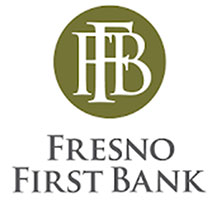
-
What Do We Do?
-
Resources
-
Events
-
Coaching
- Training


Learn from the "Best of the Best" - the Great Game™ All-Stars

Fresno First Bank opened in December 2005 by a local group of successful business people, some of whom had experience with the successful Regency Bank, which sold at the end of 1999. In 2007, after the CEO’s position opened up, the bank brought in Rick Whitsell, an experienced banker, to fill the position. Two weeks later, the chief financial officer and chief credit officer resigned, which created an opportunity to Whitsell to bring in his own team. At the same time, the bank’s chairman, David Price, happened to be a fan of the Great Game of Business, so he suggested that the bank’s management team go to Springfield, MO, to see how the Great Game was played.
Back in 2007, the financial crisis and “Great Recession” was unfolding, which began to create challenges for the bank in terms of its shrinking interest margins (the interest earned from loans compared to what it paid out in deposits), increased loan loss reserves (increased expenses), cost of compliance (time and money), and increased capital requirements (very expensive). Added up, it was a challenging time to be in banking, especially for a new startup.
The bank’s management team quickly embraced the three tenets of the Great Game: Know and Teach the Rules; Follow the Action and Keep Score; and Provide a Stake in the Outcome. They began by teaching their staff about how a bank makes and spends money and how their individual jobs impacted those figures. They then established their critical numbers and developed a scorecard to track the action and held huddles to discuss the results. Finally they implemented a bonus program tied to their critical numbers to share in the rewards.
As a top-level goal, Fresno First wanted to reinvent its culture of ownership where its staff thought and acted like owners. A big step in building that kind of attitude was to establish monthly huddles to post and discuss results from all the operating units within the bank. And rather than run it as a top-down exercise, each group or department reported its own progress on how it tracks towards its goals while also sharing its forecasts for the next period. But in order to generate those figures, each unit began huddling on a weekly basis to not just track the results but also to assess what was working, what wasn’t, and how they could fix it. Another big step the bank took in building that new mindset of ownership was to create an ESOP retirement trust account. The bank annually has contributed approximately 8% of total salary expense to the ESOP trust. In addition, each employee is awarded options. “The premise is that if the bank’s and the departmental goals are met or exceeded then all should share in the financial success of the bank,” says Whitsell.
After practicing the Great Game and open-book management for six years, the bank has been able to “transform” itself in ways to ensure it’s long-term success by achieving more profit, improved efficiency, a higher level of service and a better return for its shareholders. “Turnover is low and we are exceeding our goals,” says Whitsell, “which also means nice incentives for
employees.” As another testament to their success, the bank was one of 30 companies asked to participate in a research project conducted by the Center for Values-Driven Leadership at Benedictine University and the Small Giants Community to explore the relationship between culture, profit and other factors of performance.
RESULTS
- Playing the Great Game has helped Fresno First both increase its interest income and reduce its expenses significantly, which has helped turn a loss of $2.2 million before tax in 2008 into a positive net income result of more than $3.3 million before tax in 2014.
Terms and Conditions | Privacy Policy
All trademarks, trade names or logos mentioned or used herein are the property of their respective owners. Reference to any product or service by manufacturer, trade name, trademark or otherwise does not reflect any affiliation with the manufacturer or its endorsement of the products or services. | COPYRIGHT © 2019 THE GREAT GAME OF BUSINESS, INC. All rights reserved.
For over 40 years, The Great Game of Business™ has helped organizations reach their highest potential and value.
Tapping into the universal human need to win, GGOB educates your people in the rules of business, rallies them around a common goal, empowers them to see and improve the score, and engages them by giving them a stake in the outcome.
2401 E. Sunshine St.
Springfield, MO 65804